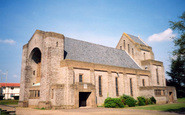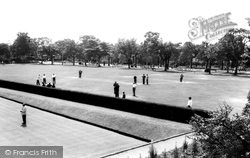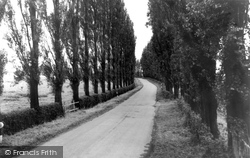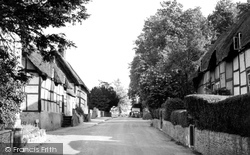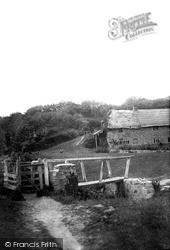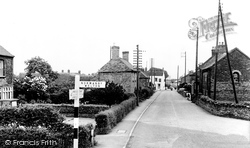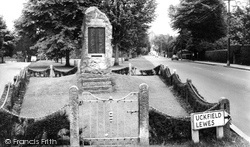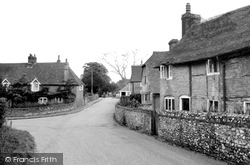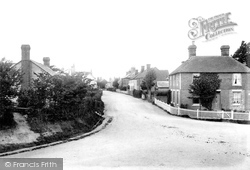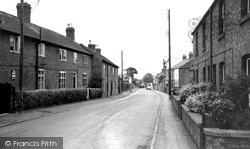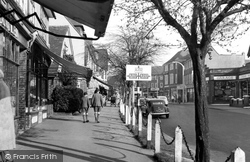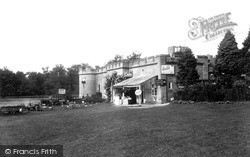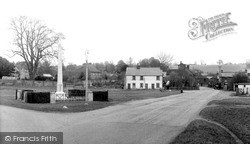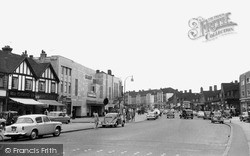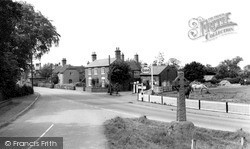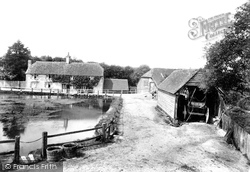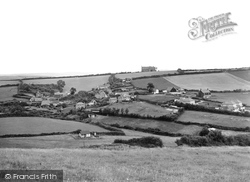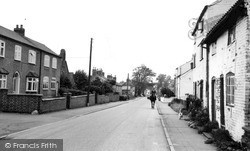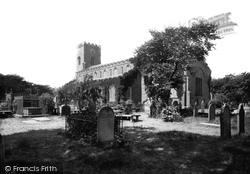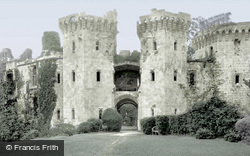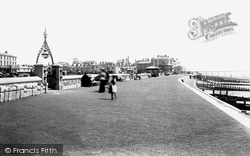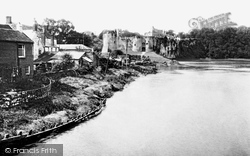Places
7 places found.
Those places high-lighted have photos. All locations may have maps, books and memories.
Photos
42 photos found. Showing results 81 to 42.
Maps
46 maps found.
Books
Sorry, no books were found that related to your search.
Memories
472 memories found. Showing results 41 to 50.
Furzton Lake
I am greatly surprised that there are no photos of Furzton Lake in the Frith archive. Our son David lived in a modern terraced house in Winsford Hill, Furzton until 2005. I remember there was a gap in the hedge with a gate we installed ...Read more
A memory of Furzton in 2000 by
Playing Football
I remember the person who broke his leg that day was Bernie Lowe as I was playing for the team Hound United against Netley FC on that pitch. I also remember your father as I played for them for a season with I think your brother ...Read more
A memory of Netley by
Love That Place!
Born at Petersfield in 1940, my first home was Berry Cottage, down Sandy Lane, opposite Sibley's farm. Berry cottage had only 4 rooms (2 up and 2 down), no running water, only a well and later a tap down in the lane. I remember the ...Read more
A memory of Rake Firs in 1940 by
Not Strictly Ashby : )
Willesley Close was the centre of the universe for the first twelve years of my life from 1959. The garden enclosed twenty yards of the old railway embankment and featured a natural spring, the source of much ...Read more
A memory of Ashby-de-la-Zouch in 1971 by
A Wonderful Childhood At St Catherines
My late father, Rev H Roderick Carter, was the Vicar at St Catherines from the early 1950's to about 1968. Living at the Vicarage meant that we had people coming and going all day, everyday. Mum was very ...Read more
A memory of Norwich in 1955 by
Childhood Memories In The 1970's
My maternal grandparents lived in Palmers Green - firstly in Elmdale Road close to what is now the North Circular and then moving to Wentworth Gardens off Hedge Lane. I have many childhood memories of visiting ...Read more
A memory of Palmers Green by
Broughton Astley Pre 1950
This is my second entry about Broughton Astley and may contain some references to items in my first reminisces. As a person 'born and bred' in Broughton Astley, I have fond memories of the village as it was 'in the ...Read more
A memory of Broughton Astley by
Bretherton In The Late 1940s & Early 50s
When I was a child we used to take my Grandma to visit some of her relatives in Bretherton. My memory is that they lived in a little cottage at the end of a row of about six, along a country lane. I don't ...Read more
A memory of Bretherton
John Allen Venner, Jacobs Well Farm
John Allen Venner was a Hurst Green Veterinary Surgeon and his wife Emily Baxter raised 10 children at Jacobs Well Farm. The children were John, Emily, George, Jane, Annie, Maud, May, Grace, Harry and ...Read more
A memory of Hurst Green in 1900 by
To The Lady Wanting To Find People Remembering Josephines
I do remember this lovely lady, her brother, and her quaint little shop. She sold flowers, fruit, veg, sweets, tobacco etc, and wonderful lemon dip sugar. My dad used her shop nearly every ...Read more
A memory of Botley in 1955
Captions
165 captions found. Showing results 97 to 120.
But foreign sports are taking over: just beyond the hedge today a strip of land has been prepared with sand so that people can play boules.
The hedge on the right has been replaced by a fence, but the poplars remain intact.
The sun is shining on another outstanding Hampshire village with some timeless timber-framed cottages and nicely cut hedges. The broadcaster Sir David Frost is rumoured to live here.
On reaching the Old Mill, the footpath across the fields from Lyme becomes a double-hedged dirt track through a carpet of wild garlic into Uplyme village. 17th-century buildings and the wooden paddles
Actually, several more things have disappeared, including the signpost, which has been replaced by much smaller signs that are partially covered by the hedge.
It is interesting to compare the height of the hedge with the one in photograph H252583.
The parish church behind the holly hedge to the left at the corner of Ripley Road is partly Norman.
Here the photographer looks west along High Street; the picket fence on the right has been replaced by conifer hedging.
This small village is set in an enclosure landscape of straight hawthorn hedges, between Fleckney and Countesthorpe, to the south of the city.
On the left, two uniformed schoolboys, probably from either Sutton Grammar or Sutton High School, are about to pass the hedge in front of Cheam Hall as they make their way towards the main junction.
A previous Lord Byron, the fifth, an ex-Naval man, had a warship in the lake and built mock forts around its edges in the 1770s; this one is the only survivor, and is in fact a conversion of the stables
Actually, several more things have disappeared, including the signpost, which has been replaced by much smaller signs that are partially covered by the hedge.
The hedges are full with shepherd's rose, honeysuckles and all sorts of flowers, with the most beautiful of all flower gardens and shrubberies on your one hand and corn on the other.
It is difficult to believe, looking at Kingsbury Road, that the area retains many field hedges and trees; they were preserved quite carefully in the laying out of the 1930s estates, a definite plus for
The houses of the late 18th and early 19th centuries are almost picturesque behind hedges and walls, with a restrained petrol sign being all that is needed to alert drivers to the garage's presence - petrol
The stream flows in the foreground, and the Mill House is concealed behind hedges. The mill buildings on the right have been converted to a house, Mill Cottage. The wagon shed has gone.
This small village is set in an enclosure landscape of straight hawthorn hedges, between Fleckney and Countesthorpe, to the south of the city.
The top of the same iron-railed gate as in the 1899 photograph (43872) can be seen in the hedge in the foreground.
From opposite the Dog and Gun Pub, the camera looks along the straight village street with its assortment of restrained houses, hedges and walls.
Church is not far from the large cricket ground, where a socket of a stone cross (marking one of the resting places of St Cuthbert when he was being carried to his final tomb at Durham) was found in a hedge
The circular gun-ports at the base of the gatehouse walls are obscured by hedging.
On the left edge is the Royal Norfolk Hotel, rebuilt here in 1826 after the earlier one burnt down.
The top of the same iron-railed gate as in the 1899 photograph (43872) can be seen in the hedge in the foreground.
In front of the building was a bay hedge from which people could pluck a few bay leaves with which to cook their salmon.
Places (7)
Photos (42)
Memories (472)
Books (0)
Maps (46)



